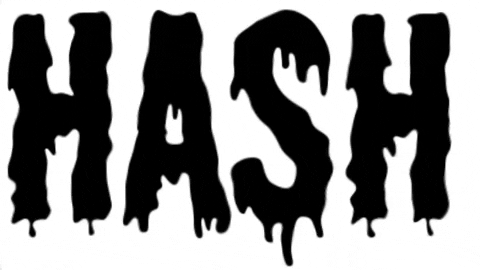American Whatever
The gravity of something inside me, at the center of me, had gotten so heavy I was collapsing inward. I was being crushed from within. “Ack!” I said at a doctor and the doctor said “Hmm!” . . . I only saw them once. The second time I was supposed to go to the doctor I saw factory towers beside a train track and I couldn’t get them out of my head. I turned around and drove through the open barbed wire gates. As it turned out, they were hiring. The factory was unlike any job I’d ever had. We made boxes. Boxes and packaging. Four tiered end-caps and those cartons you get at Costco that make great cat-boxes. I ran one of the new machines. The company had bought it from Germany. It took six months to assemble, and when they were done I drove my truck through the barbed wire gate and said, “Ackckck?” and they said, “You're hired.” It had a touchscreen monitor that showed the ink levels in colorful rows. I watched the monitor and I put ink in the barrels when they needed it. I also loaded the paper. I put great sheets into the machine and they came out the other side as flat, scored cardboard, glistening with red and yellow and orange and green and whatever, whatever it was the customer wanted. The boss was always walking around talking about the customer. “The customer wasn’t happy,” he’d say, or “What if the customer isn’t happy?” Which, when you think about it, was how Frank fell into the machine. Because of the customer. Because we were afraid of the customer. They wielded tremendous power over us. One time, on another machine, seven hundred wine boxes were printed three degrees off center and the operator, Orlando, was red the next day. The customer wouldn’t use the boxes. The boxes were nothing. Those older machines, especially, are sensitive. But mistakes are money. And so when there was a jam in his machine Frank leaned way in to dislodge it. Shutting the whole machine down and restarting its program and resetting the design would take hours. Hours are a kind of mistake. How you spend them. And so Frank reached way in. His hand was covered in ink. Like the ink had reached up out of the rollers and held his hand. And then his hand was in, and then his elbow, and you wouldn’t think those machines could fit one, an entire human body, but they can. He was pulled into the rollers and crushed into a box. They had to reset all of his bones. I saw him once in his full-body cast. His two bright pink little fingers and his raw veiny nose were the only things sticking out of the plaster. “Ackackack!” I said and he said, “Mmmmfmfmf.” Of course I knew exactly how he felt. I was still being crushed to death, even with the factory in my life. There had been something so romantic about it that first day, and it obscured my empty heaviness. The smokestacks unspooling grey mist into the blue sky. The flat horizon, the distant train, the rattling tracks. It’s not that my doctor was in some industrial wasteland. I’d just always loved that drive. Through the railyards and recycling centers, over the river, into the dark green canopy of the college campus, the sudden shade, the calm, the quiet . . . I liked the mood it gave me. It wasn’t happiness, or contentment. It was more like finding the peace you need to throw a punch. Precipitous clarity. But when I saw the factory I had the same feeling. It was as beautiful to me as conifers. And so I slowed down and at the next opportunity made a U-Turn. I didn’t cross that river again for a very long time. I got the job and every morning I saw the first plumes of smoke rising from the factory and into the lightning sky. Inside, the hum and whine and churning of the machines, the shoom, shoom, shoom of the cardboard slats flying through the rollers. Forklifts with steel mandibles shifting rolls of paper measured in tonnage, their flashing lights, their beeping in reverse. There was such activity that it was possible to float through the day. But then, as always, the days piled up, became heavy in my heart. There would never not be boxes to be made, to be colored and stacked and shipped. This box, that box. Those boxes, these. I was waiting for a secret to be revealed, as the factory was revealed to me, which I had driven past many times and never seen. But when I needed it, there it was. And now I needed something else, and the weight of it was crushing me. It is a lonely feeling.
Dustin Heron's work has appeared recently or is forthcoming in Drunk Monkeys, Passengers, Gravel, The Normal School, Fictive Dream, and has been nominated for the Pushcart Prize and Best of the Net. His first book, Paradise Stories, was published by Small Desk Press
